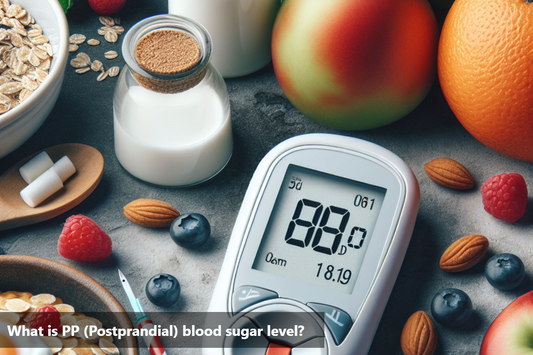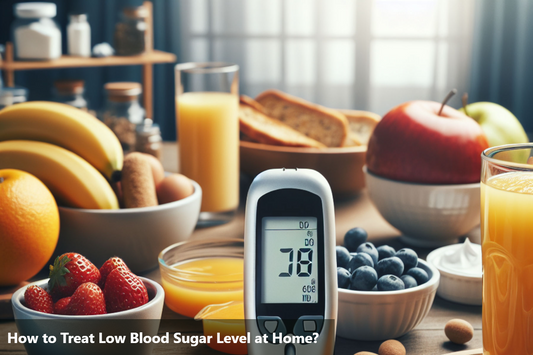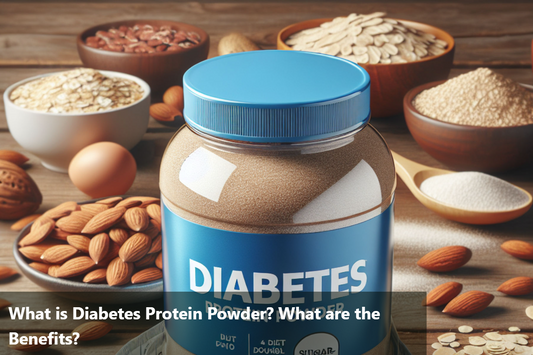Ghee, a type of clarified butter, has been a staple ingredient in traditional Indian cuisine for centuries. Known for its rich flavor and numerous health benefits, ghee plays a crucial role in enhancing the taste of various dishes while also offering potential therapeutic properties. However, in recent times, the rise in diabetes cases has sparked a debate regarding the suitability of ghee for diabetic patients.
Traditionally, ghee has been revered for its medicinal properties in Ayurveda, an ancient Indian system of medicine. while ghee may have a minimal impact on blood sugar levels due to its low GI and nutrient content, moderation and individualized dietary planning are key factors to consider for optimal blood sugar control.
Nutritional Composition of Ghee
|
Amount in 1 tablespoon of ghee |
15g |
|
Calories |
130 Kcal |
|
Fat |
14 grams |
|
Saturated fat |
9 grams |
|
Monounsaturated fat |
4 grams |
|
Polyunsaturated fat |
0.5 grams |
|
Protein |
trace amounts |
|
Carbs |
trace amounts |
|
Vitamin A |
13% of the Daily Value (DV) |
|
Vitamin E |
3% of the DV |
|
Vitamin K |
1% of the DV |
Impact of Ghee on Blood Sugar Levels
-
Low Glycemic Index: Ghee has a low glycemic index (GI), meaning it causes a slower and more gradual increase in blood sugar levels compared to high-GI foods. This slower absorption can help in stabilizing blood sugar levels and preventing sudden spikes.
-
Healthy Fats: Ghee primarily consists of saturated fats and monounsaturated fats, which do not significantly impact blood sugar levels when consumed in moderation. These healthy fats can provide sustained energy without causing rapid fluctuations in blood glucose.
-
Vitamins and Antioxidants: Ghee contains fat-soluble vitamins like vitamin A, D, E, and K, as well as antioxidants. These nutrients play a role in improving insulin sensitivity and reducing inflammation, which can indirectly help in regulating blood sugar levels.
-
Butyric Acid: Ghee contains butyric acid, a short-chain fatty acid that has been associated with improved insulin sensitivity and glucose metabolism. Research suggests that butyric acid may help in reducing insulin resistance and promoting better blood sugar control.
-
Individual Variability: The impact of ghee on blood sugar levels can vary among individuals based on factors such as metabolic health, overall diet, and portion size. While some people may experience stable blood sugar levels with moderate ghee consumption, others may need to monitor their intake more closely, especially if they have diabetes or insulin resistance.
-
Portion Control: Despite its potential benefits, ghee is calorie-dense, and excessive consumption can contribute to weight gain, which in turn may affect blood sugar levels. It's essential to consume ghee in moderation and incorporate it as part of a balanced diet.
Recommendations for Diabetic Patients
-
When it comes to ghee for diabetic patients, moderation is key. Prioritize portion control, regular physical activity, and regular monitoring of blood sugar levels to maintain optimal health while enjoying the benefits that ghee can offer. While ghee can have potential benefits, it is crucial to consume it in limited amounts to avoid adverse effects on blood sugar levels.
-
Pairing ghee with foods that have a low glycemic index, more protein and low carbs can help minimize the impact on blood glucose levels further more. This means opting for whole grains, vegetables, and lean proteins to balance out the inclusion of ghee in meals.
-
Consulting with healthcare providers before making significant changes to your diet is essential. Your healthcare team can provide personalized advice based on your individual health status and dietary needs. They can offer guidance on the quantity of ghee that is safe for you to consume daily and how best to incorporate it into your diet plan.
An Overview on Ghee
As we navigate the complexities of dietary choices for diabetic individuals, the consideration of ghee must be approached with caution and moderation. Consulting with healthcare providers for personalized advice on incorporating ghee into a diabetic diet is highly recommended. Pairing ghee with other foods to balance its saturated fat content and potential benefits is also a practical approach for managing diabetes effectively.
In conclusion, while ghee can be a flavorful addition to meals, the discussion around its use in diabetes underscores the need for continued research and tailored recommendations to support the health and well-being of diabetic individuals.
This Blog post is an initiative by DiabeSmart, to provide accurate and Nutritionist / Doctor approved information related to Diabetes. DiabeSmart is India's first Food brand designed specifically for Diabetics, that has been clinically tested on Diabetics and Pre-Diabetics to deliver 55% - 70% lower Sugar spikes. DiabeSmart is part of Lo! Foods - India's leading brand for Everyday Functional Health foods.















